Nissan Renault going mobile: The Nissan and Renault alliance is entering the self-driving, ride-hailing and shared rides business; and the cars will be electric. It won’t be happening overnight – not 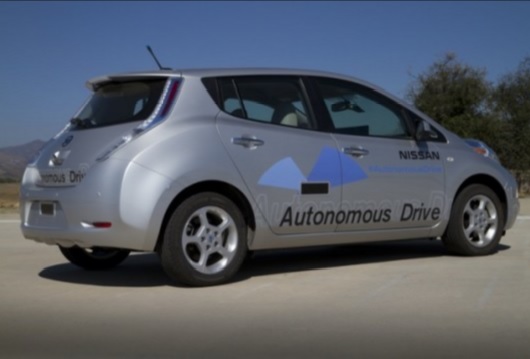 likely before 2020 but within 10 years, a company executive said. The two companies have been testing self-driving vehicles. The mobility service will run on pre-mapped courses with predetermined pick-up and drop-off points. The automated system is being worked out with Japanese game software maker DeNA Co Ltd and French public transport operator Transdev SA. Several companies have revealed similar plans through alliances or on their own, including Ford, Uber, Lyft, Waymo, BMW, and General Motors. Tesla will offer its buyers fully autonomous cars that they can rent out for shared rides.
likely before 2020 but within 10 years, a company executive said. The two companies have been testing self-driving vehicles. The mobility service will run on pre-mapped courses with predetermined pick-up and drop-off points. The automated system is being worked out with Japanese game software maker DeNA Co Ltd and French public transport operator Transdev SA. Several companies have revealed similar plans through alliances or on their own, including Ford, Uber, Lyft, Waymo, BMW, and General Motors. Tesla will offer its buyers fully autonomous cars that they can rent out for shared rides.
25 years in clean transportation: CALSTART marks its 25th anniversary in October, with its symposium connecting transportation, jobs, and the environment. This gathering of national policymakers and industry leaders will explore market acceleration through transportation policies and technologies that result in creating more jobs, while meeting our climate and clean air goals. Solutions and actions to stimulate thinking toward a 2030 vision for a clean transportation economy will be explored. Stakeholders will gather on October 25 in Pasadena, Calif.
FuturePorts looks at role of clean trucks in port sustainability
The Ports of Los Angeles and Long Beach are striding forward on their commitment made a decade ago to bring clean trucks to the 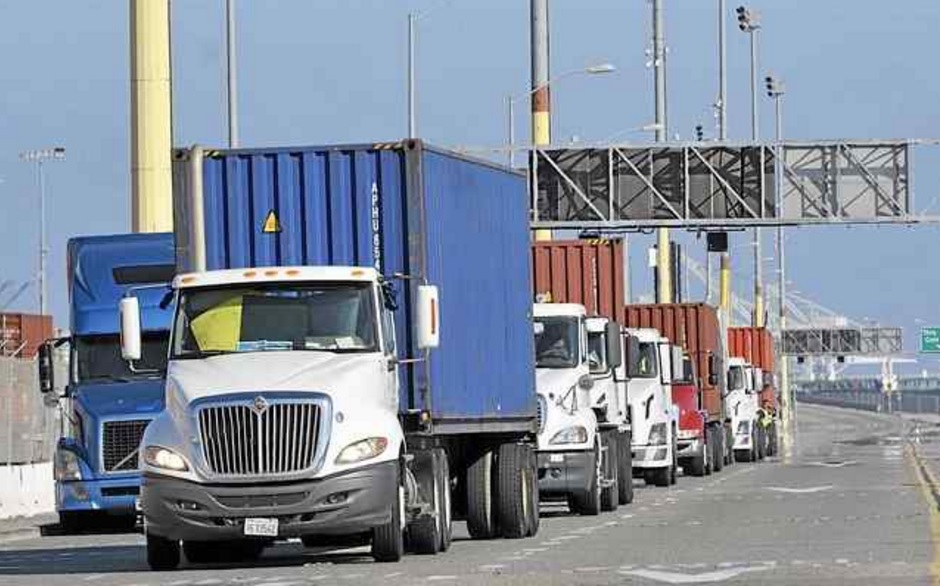 southland. Trucks powered by renewable natural gas (RNG), batteries, and hydrogen are becoming part of entering the next phase, according to speakers yesterday at FuturePorts in Long Beach, Calif.
southland. Trucks powered by renewable natural gas (RNG), batteries, and hydrogen are becoming part of entering the next phase, according to speakers yesterday at FuturePorts in Long Beach, Calif.
More support for fleet operators acquiring these vehicles is likely to come from revenue collected through the state’s cap and trade auction funds, which came from the state’s AB 32 global warming measure, said Wayne Nastri, executive officer at South Coast Air Quality Management District. A new bill in Sacramento, if passed, addresses vehicle smog checks and could also provide more funding for clean heavy-duty trucks, he said.
Fleets in Southern California have been early adopters of RNG, using the clean fuel in refuse trucks, street sweepers, and buses, said George Minter, regional vice president, external affairs and environmental strategy for Southern California Gas Company (SoCalGas).
Yesterday also saw a major announcement by Los Angeles County’s Metropolitan Transportation Authority’s board authorizing the purchase of nearly 300 natural gas buses; the agency will be running them on RNG that can reduce exhaust emissions by as much as 98% when compared to MTA’s current buses.
The Advanced Clean Trucks (ACT) Now Plan was presented last month to the ports of Los Angeles and Long Beach. California Natural Gas Vehicle Coalition submitted the plan directed at drayage trucks serving the ports. The coalition is giving input as the ports adopt the 2017 Clean Air Action Plan. The ACT Now Plan encompasses all zero- and near-zero emission technologies and fuels, including natural gas, propane, battery electric, hydrogen fuel cell electric, and others that meet a 0.02 g/bhp-hr NOx standard. The .02 standard has been supported by public fleets and transit agencies since being adopted by California Air Resources Board and Air Quality Management Districts about two years ago.
Transit buses, refuse trucks, and medium- and heavy-duty trucks built with Cummins Westport’s ISL G near zero certified natural gas 8.9-liter engine are fueled by renewable natural gas that’s reducing NOx emissions by 90% based on the .02 standard. A Cummins Westport 11.9-liter heavy-duty natural gas engine is awaiting certification by CARB and EPA, Minter said. Other vehicle and engine manufacturers may be rolling out technology suited for near zero emission trucks, especially as the 2023 deadline for hitting Clean Air Act targets approaches, he said.
Caroline Choi, senior vice president for regulatory affairs at Southern California Edison, said her utility has been exploring ways to “decarbonize” transportation through electric power. One project involved converting over cranes to run on electricity instead of diesel at the Port of Long Beach. Electric medium- and heavy-duty trucks are on their way. The company is also getting involved in test projects using electric rubber tired gantry cranes and yard tractors, she said.
Consumers and fleet operators also want to know more about rate costs tied to charging electric vehicles, Choi said. The utility is looking into rate pricing to keep it stable and eliminate demand charges.
Ash Corson, alternative fuels vehicle manager for Toyota, talked about Toyota’s Project Portal, which is testing out heavy-duty fuel cell drayage trucks at the ports. Toyota engineers have been working on hydrogen-fueled Class 8 trucks capable of carrying up to 80,000 pounds. A Toyota video showed a fuel cell truck having a lot more torque power than a diesel truck.
Choi and Minter engaged in a bit of banter over which technology, electric or RNG, is really zero emissions – or less. Minter made the point that RNG can go lower than electric, with some of it reaching net negative in emissions when the material comes from sewage treatment plants, landfills, and particularly from dairies. Choi distinguished clean energy, coming from renewable sources like wind and solar, from renewable fuels like biomethane.
Nastri reiterated SCAQMD’s stance on being technology neutral, supporting technologies that are dramatically reducing vehicle emissions. All of the panelists agreed on that point, and emphasized being cooperative in the decades-long battle between petroleum and clean fuels.
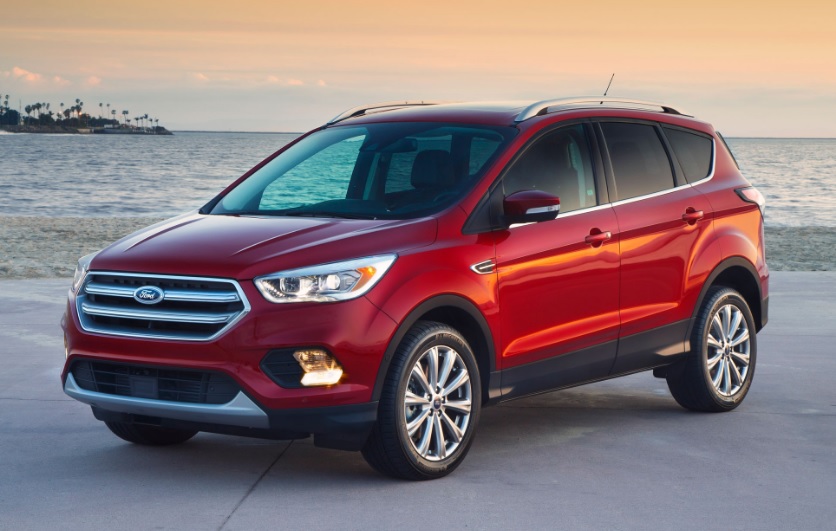 Max Energi plug-in hybrid. Ford has been disappointed with the C-Max Energi’s sales performance, though it has been doing a little better lately. Ford has been playing with the idea of a PHEV Escape for about a decade, having tested out a small fleet. Hybrid versions of competitors are out there with the Toyota RAV4 and Nissan Rogue, and an expectation that Honda will bring out a hybrid CR-V.
Max Energi plug-in hybrid. Ford has been disappointed with the C-Max Energi’s sales performance, though it has been doing a little better lately. Ford has been playing with the idea of a PHEV Escape for about a decade, having tested out a small fleet. Hybrid versions of competitors are out there with the Toyota RAV4 and Nissan Rogue, and an expectation that Honda will bring out a hybrid CR-V.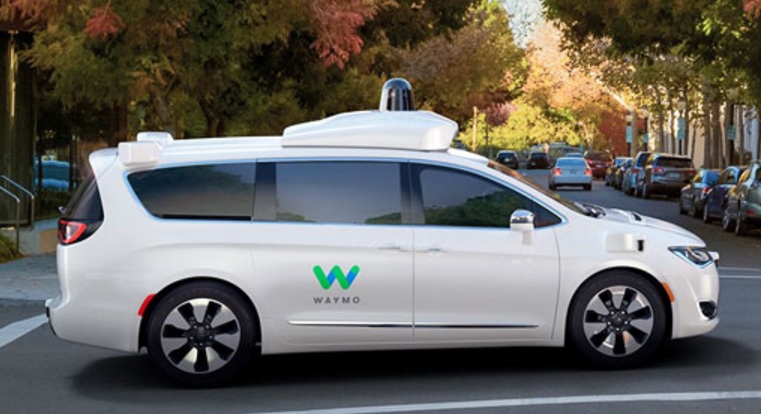 Avis Budget Group for the car rental company to manage Waymo’s fleet of autonomous vehicles. Avis will service and store Waymo’s Chrysler Pacifica plug-in hybrid minivans, with Waymo owning the vehicles and paying Avis for these services. It will start out in Phoenix, where Waymo has been doing much of its testing lately. The agreement will cover multiple years but won’t be exclusive. Avis has been very active in the mobility space, having purchased carsharing market leader Zipcar a few years ago.
Avis Budget Group for the car rental company to manage Waymo’s fleet of autonomous vehicles. Avis will service and store Waymo’s Chrysler Pacifica plug-in hybrid minivans, with Waymo owning the vehicles and paying Avis for these services. It will start out in Phoenix, where Waymo has been doing much of its testing lately. The agreement will cover multiple years but won’t be exclusive. Avis has been very active in the mobility space, having purchased carsharing market leader Zipcar a few years ago.
 likely before 2020 but within 10 years, a company executive said. The two companies have been testing self-driving vehicles. The mobility service will run on pre-mapped courses with predetermined pick-up and drop-off points. The automated system is being worked out with Japanese game software maker DeNA Co Ltd and French public transport operator Transdev SA. Several companies have revealed similar plans through alliances or on their own, including Ford, Uber, Lyft, Waymo, BMW, and General Motors. Tesla will offer its buyers fully autonomous cars that they can rent out for shared rides.
likely before 2020 but within 10 years, a company executive said. The two companies have been testing self-driving vehicles. The mobility service will run on pre-mapped courses with predetermined pick-up and drop-off points. The automated system is being worked out with Japanese game software maker DeNA Co Ltd and French public transport operator Transdev SA. Several companies have revealed similar plans through alliances or on their own, including Ford, Uber, Lyft, Waymo, BMW, and General Motors. Tesla will offer its buyers fully autonomous cars that they can rent out for shared rides. southland. Trucks powered by renewable natural gas (RNG), batteries, and hydrogen are becoming part of entering the next phase, according to speakers yesterday at
southland. Trucks powered by renewable natural gas (RNG), batteries, and hydrogen are becoming part of entering the next phase, according to speakers yesterday at 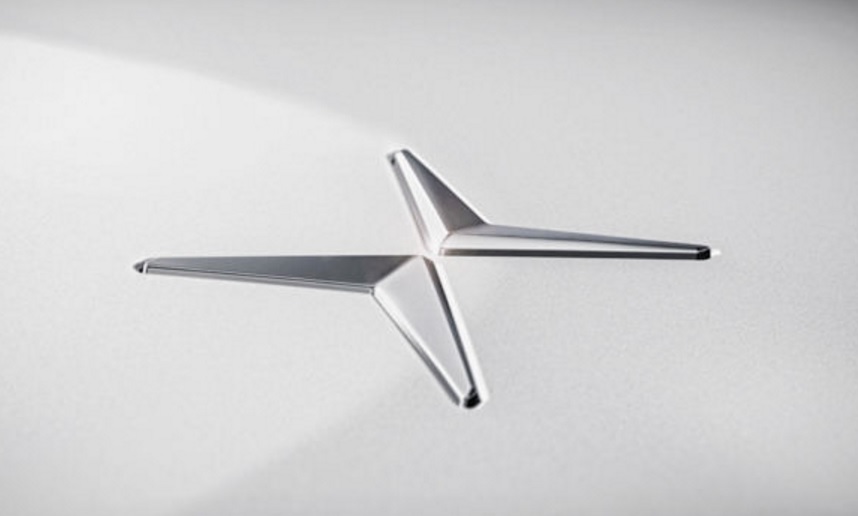 Polestar. Volvo acquired Polestar Performance in 2015. Polestar Performance had been a business that Volvo hired to jointly develop high-performance versions of its vehicles. The two companies will tap into economies of scale and other resources Volvo offers. Polestar will reveal its business plan this fall. Thomas Ingenlath to be CEO at Polestar. He previously had helped Volvo increase sales of several vehicles including the XC90. Polestar will challenge Tesla and BMW i subbrand as a global brand.
Polestar. Volvo acquired Polestar Performance in 2015. Polestar Performance had been a business that Volvo hired to jointly develop high-performance versions of its vehicles. The two companies will tap into economies of scale and other resources Volvo offers. Polestar will reveal its business plan this fall. Thomas Ingenlath to be CEO at Polestar. He previously had helped Volvo increase sales of several vehicles including the XC90. Polestar will challenge Tesla and BMW i subbrand as a global brand.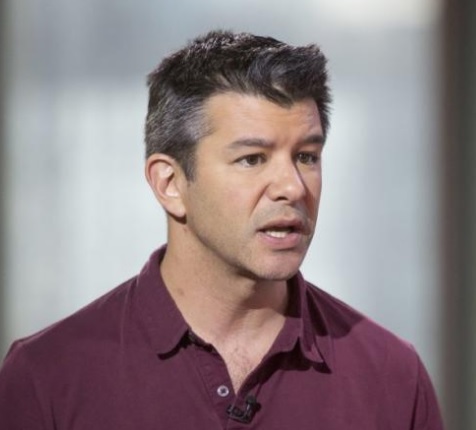 starting up in May 2010, Uber invented a new segment of mobility – a business model adopted by Lyft, food delivery companies like Postmates and DoorDash, and dozens of other startups; and that’s put several taxi companies out of business. Uber became the most valuable private company in the world with Kalanick able to bring several venture capital backers onboard. The CEO was known for his aggressive style and for leading a workplace that hasn’t been good for women to work in; or many of the other male executives who’ve left in recent weeks. No matter what happens, the Uber brand name is likely to be carried forward as it’s become the icon of mobility services; maybe by another group of owners.
starting up in May 2010, Uber invented a new segment of mobility – a business model adopted by Lyft, food delivery companies like Postmates and DoorDash, and dozens of other startups; and that’s put several taxi companies out of business. Uber became the most valuable private company in the world with Kalanick able to bring several venture capital backers onboard. The CEO was known for his aggressive style and for leading a workplace that hasn’t been good for women to work in; or many of the other male executives who’ve left in recent weeks. No matter what happens, the Uber brand name is likely to be carried forward as it’s become the icon of mobility services; maybe by another group of owners.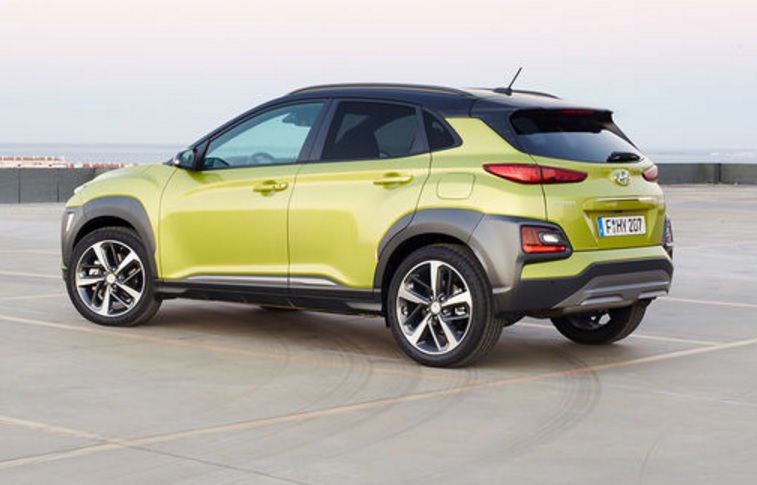 surge of 59% in sales during that five-year period. It was less for light-duty trucks with less than 10% increase in fuel economy, with 41% seeing an increase in sales during that period. The Toyota RAV4 is a clear example of the trend by increasing in mileage by 10 percent in that time – with a nearly 220,000 unit increase, a 166% gain, in annual vehicle sales. The consumer group sees the federal fuel economy standards moving truck fuel efficiency forward and sales of pickups, crossovers, and SUVs. “This analysis completely debunks automaker claims that consumers don’t value good gas mileage,” said Jack Gillis, CFA’s director of public affairs. “Clearly, the more improvement in MPG, the better the sales.”
surge of 59% in sales during that five-year period. It was less for light-duty trucks with less than 10% increase in fuel economy, with 41% seeing an increase in sales during that period. The Toyota RAV4 is a clear example of the trend by increasing in mileage by 10 percent in that time – with a nearly 220,000 unit increase, a 166% gain, in annual vehicle sales. The consumer group sees the federal fuel economy standards moving truck fuel efficiency forward and sales of pickups, crossovers, and SUVs. “This analysis completely debunks automaker claims that consumers don’t value good gas mileage,” said Jack Gillis, CFA’s director of public affairs. “Clearly, the more improvement in MPG, the better the sales.”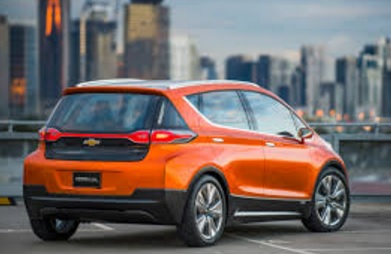 tests and a “Superior” score for front crash prevention. The institute said that the Bolt was the first all-electric vehicle to earn the pick for 2017. Among small cars, the Bolt joins 11 other nameplates as Top Safety Picks, including the 2017 Chevy Volt. the National Highway Traffic Safety Administration will still need to crash test the Bolt.
tests and a “Superior” score for front crash prevention. The institute said that the Bolt was the first all-electric vehicle to earn the pick for 2017. Among small cars, the Bolt joins 11 other nameplates as Top Safety Picks, including the 2017 Chevy Volt. the National Highway Traffic Safety Administration will still need to crash test the Bolt.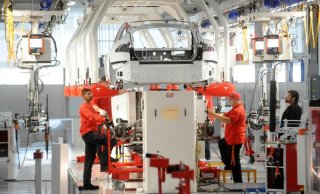 with at least one Chinese company, which is the case for all other automakers manufacturing vehicles in China. While Tesla wants to cut out the 25% tariff being charged to import its cars to China, creating a JV has been outside Tesla’s corporate culture (an example being creating its own Supercharger fast charger and not sharing the tech with other automakers). In early May, CEO Elon Musk had met with Chinese vice premier Wang Yang, which was reported in state-owned media as focusing on a JV being forged. The electric automaker released a statement at that time denying it will be going into business with a Chinese company. But Tesla does want to have a strong presence in China, having tripled its revenue there to $1 billion last year; creating a JV may be a necessity.
with at least one Chinese company, which is the case for all other automakers manufacturing vehicles in China. While Tesla wants to cut out the 25% tariff being charged to import its cars to China, creating a JV has been outside Tesla’s corporate culture (an example being creating its own Supercharger fast charger and not sharing the tech with other automakers). In early May, CEO Elon Musk had met with Chinese vice premier Wang Yang, which was reported in state-owned media as focusing on a JV being forged. The electric automaker released a statement at that time denying it will be going into business with a Chinese company. But Tesla does want to have a strong presence in China, having tripled its revenue there to $1 billion last year; creating a JV may be a necessity. easy to navigate and mobile device responsive. You can also view listings for upcoming clean transportation webinars in the Upcoming Events area. “Electrifying Your Fleet: How the latest technologies can significantly reduce the infrastructure and operating costs of driving on electricity,” will take place on August 16 and will be presented by charging infrastructure supplier ChargePoint. “Case Studies of Green Fleet Activities in Canada” will take place on October 18 and will be presented by Fleet Challenge.
easy to navigate and mobile device responsive. You can also view listings for upcoming clean transportation webinars in the Upcoming Events area. “Electrifying Your Fleet: How the latest technologies can significantly reduce the infrastructure and operating costs of driving on electricity,” will take place on August 16 and will be presented by charging infrastructure supplier ChargePoint. “Case Studies of Green Fleet Activities in Canada” will take place on October 18 and will be presented by Fleet Challenge.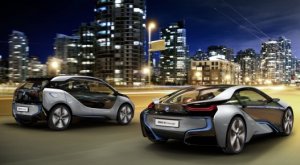 i-Series was up 73.4% in May at 7,336 units sold. Year-to-date deliveries of electrified models through the end of May reached 33,221, up 80.6%. The BMW 530e iPerformance has been available since March. Starting this summer, the 530e will be manufactured at Magna Steyr’s plant in Graz, Austria. That’s where Jaguar’s I-Pace electric SUV will be built starting early next year. The company also announced that the MINI Cooper SE Countryman ALL4 plug-in hybrid will expand the product line-up of electrified vehicles beginning in late June.
i-Series was up 73.4% in May at 7,336 units sold. Year-to-date deliveries of electrified models through the end of May reached 33,221, up 80.6%. The BMW 530e iPerformance has been available since March. Starting this summer, the 530e will be manufactured at Magna Steyr’s plant in Graz, Austria. That’s where Jaguar’s I-Pace electric SUV will be built starting early next year. The company also announced that the MINI Cooper SE Countryman ALL4 plug-in hybrid will expand the product line-up of electrified vehicles beginning in late June.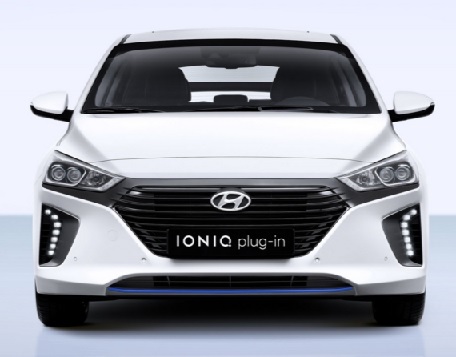 important examples of sustainable designs and provide awareness on what companies are designing and producing to make the most positive impact on the environment. Ioniq is the first vehicle in the world to offer three distinct electrified powertrains on a single, dedicated vehicle platform – the Ioniq Hybrid, Plug-in Hybrid, and Electric models. “Hyundai is committed to progressing the future of eco-friendly driving and the Ioniq is just the beginning,” said Chris Chapman, chief designer, Hyundai Design Center. “The future-focused character of the Ioniq along with its innovative use of recycled and ecologically-sensitive materials has made Ioniq the most fuel-efficient vehicle and a leader in the environmentally-friendly vehicle space.”
important examples of sustainable designs and provide awareness on what companies are designing and producing to make the most positive impact on the environment. Ioniq is the first vehicle in the world to offer three distinct electrified powertrains on a single, dedicated vehicle platform – the Ioniq Hybrid, Plug-in Hybrid, and Electric models. “Hyundai is committed to progressing the future of eco-friendly driving and the Ioniq is just the beginning,” said Chris Chapman, chief designer, Hyundai Design Center. “The future-focused character of the Ioniq along with its innovative use of recycled and ecologically-sensitive materials has made Ioniq the most fuel-efficient vehicle and a leader in the environmentally-friendly vehicle space.”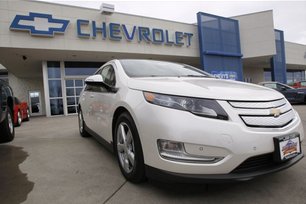 the 1.1% increase in April. The dip in manufacturing ties into increasing production cuts in the auto industry. Analysts warn that more job cuts are in the works if car sales don’t continue declining. General Motors has announced it will extend its usual two-week shutdown this summer to five weeks at some plants in the Midwest. During May auto sales, the auto industry saw a streak of declining sales for five straight months.
the 1.1% increase in April. The dip in manufacturing ties into increasing production cuts in the auto industry. Analysts warn that more job cuts are in the works if car sales don’t continue declining. General Motors has announced it will extend its usual two-week shutdown this summer to five weeks at some plants in the Midwest. During May auto sales, the auto industry saw a streak of declining sales for five straight months.  budget package that Brown had already agreed to sign. Critics of VW’s recent plan said that the first $200 million, of the $800 million to be spent in California from the settlement, could give the German automaker a competitive advantage over other automakers and charging station makers; and it would ignore low-income communities in a state that has become committed to improving air quality in disadvantaged communities that are hardest hit by polluting vehicles such as heavy-duty trucks coming from ports.
budget package that Brown had already agreed to sign. Critics of VW’s recent plan said that the first $200 million, of the $800 million to be spent in California from the settlement, could give the German automaker a competitive advantage over other automakers and charging station makers; and it would ignore low-income communities in a state that has become committed to improving air quality in disadvantaged communities that are hardest hit by polluting vehicles such as heavy-duty trucks coming from ports.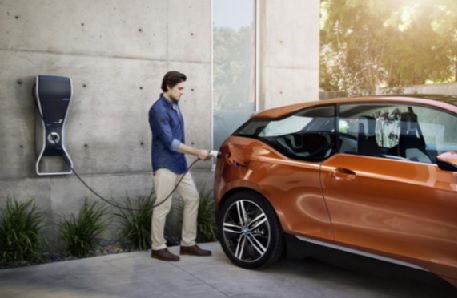 electric vehicles to become more competitive with conventional gasoline powered vehicles. A new report written by Brandon Schoettle and Michael Sivak of University of Michigan, finds a few market forces driving change. With prices of the vehicles coming down and the cost of the electricity used in charging remaining low and stable, coupled with rising interest among car shoppers and an increasing number of charging locations, plug-in electrified vehicles are becoming more competitive for replacing convention vehicles for most U.S. drivers in the relatively near future.
electric vehicles to become more competitive with conventional gasoline powered vehicles. A new report written by Brandon Schoettle and Michael Sivak of University of Michigan, finds a few market forces driving change. With prices of the vehicles coming down and the cost of the electricity used in charging remaining low and stable, coupled with rising interest among car shoppers and an increasing number of charging locations, plug-in electrified vehicles are becoming more competitive for replacing convention vehicles for most U.S. drivers in the relatively near future.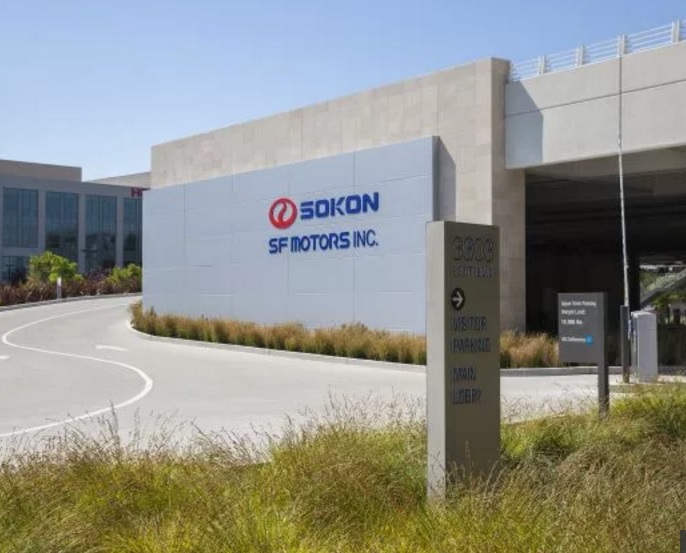 with its headquarters office in Santa Clara, Calif., and a development facility in Ann Arbor, Mich. Tesla co-founder Martin Eberhard will be part of launching the new SF Motors brand, which will be manufacturing and selling its own electric passenger vehicles. The parent company, Chongqing Sokon Industry Group Co., offers Sokon vehicles with internal combustion engines and fleet applications – small utility trucks, vans, and buses. More will be revealed in the next few months on SF Motors and its vehicle lineup.
with its headquarters office in Santa Clara, Calif., and a development facility in Ann Arbor, Mich. Tesla co-founder Martin Eberhard will be part of launching the new SF Motors brand, which will be manufacturing and selling its own electric passenger vehicles. The parent company, Chongqing Sokon Industry Group Co., offers Sokon vehicles with internal combustion engines and fleet applications – small utility trucks, vans, and buses. More will be revealed in the next few months on SF Motors and its vehicle lineup.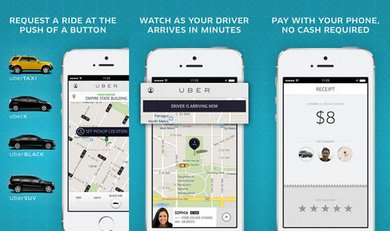 having one woman on the board often leads to more women joining, Bonderman said, “Actually, what it shows is that it’s much more likely to be more talking.” This followed news of CEO Travis Kalanick taking a leave of absence from the company, and a plan released by the company Tuesday that more accountability will be brought to executives for their actions. Huffington has been part of a panel investigating allegations made by a female ex-employee back in February over sexual harassment by an Uber executive. Earlier this month, Uber fired 20 employees over harassment, discrimination, and inappropriate behavior stemming from the February blog post by the female ex-employee. This has been a stormy year for Uber that includes an intensive court room battle with Alphabet’s Waymo subsidiary in its claims against Uber stealing its intellectual property for self-driving cars. Uber’s main U.S. competitor, Lyft, seems to be benefiting from the storm Uber is under, and continues to add partner companies to its future.
having one woman on the board often leads to more women joining, Bonderman said, “Actually, what it shows is that it’s much more likely to be more talking.” This followed news of CEO Travis Kalanick taking a leave of absence from the company, and a plan released by the company Tuesday that more accountability will be brought to executives for their actions. Huffington has been part of a panel investigating allegations made by a female ex-employee back in February over sexual harassment by an Uber executive. Earlier this month, Uber fired 20 employees over harassment, discrimination, and inappropriate behavior stemming from the February blog post by the female ex-employee. This has been a stormy year for Uber that includes an intensive court room battle with Alphabet’s Waymo subsidiary in its claims against Uber stealing its intellectual property for self-driving cars. Uber’s main U.S. competitor, Lyft, seems to be benefiting from the storm Uber is under, and continues to add partner companies to its future.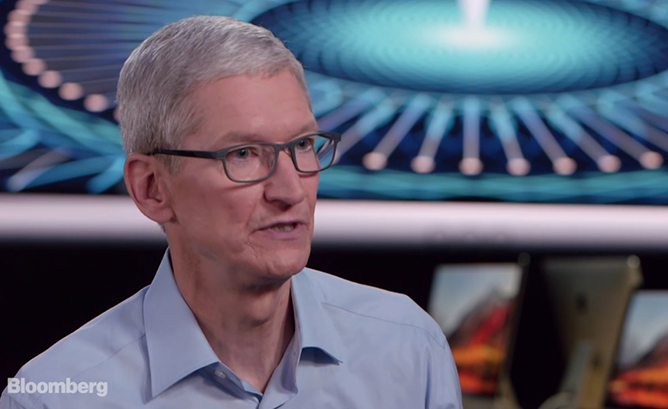 speculation over whether Apple will one day take its secret Project Titan electric autonomous car to its own factories. Cook wouldn’t speak to that topic, but did admit that autonomous vehicles is one of three technologies directing artificial intelligence in Silicon Valley – up there with electric vehicles and ride-hailing services. “We sort of see it as the mother of all AI projects,” Cook said. “It’s probably one of the most difficult AI projects actually to work on.”
speculation over whether Apple will one day take its secret Project Titan electric autonomous car to its own factories. Cook wouldn’t speak to that topic, but did admit that autonomous vehicles is one of three technologies directing artificial intelligence in Silicon Valley – up there with electric vehicles and ride-hailing services. “We sort of see it as the mother of all AI projects,” Cook said. “It’s probably one of the most difficult AI projects actually to work on.”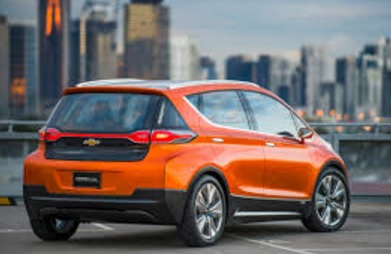 now capable of mass producing autonomous Bolts and other self-driving models. CEO Mary Barra has said GM is the only automaker capable of building high-volume autonomous vehicles in its assembly plant. GM will also working with ride-hailing firm Lyft on testing these vehicles with Lyft drivers.
now capable of mass producing autonomous Bolts and other self-driving models. CEO Mary Barra has said GM is the only automaker capable of building high-volume autonomous vehicles in its assembly plant. GM will also working with ride-hailing firm Lyft on testing these vehicles with Lyft drivers.